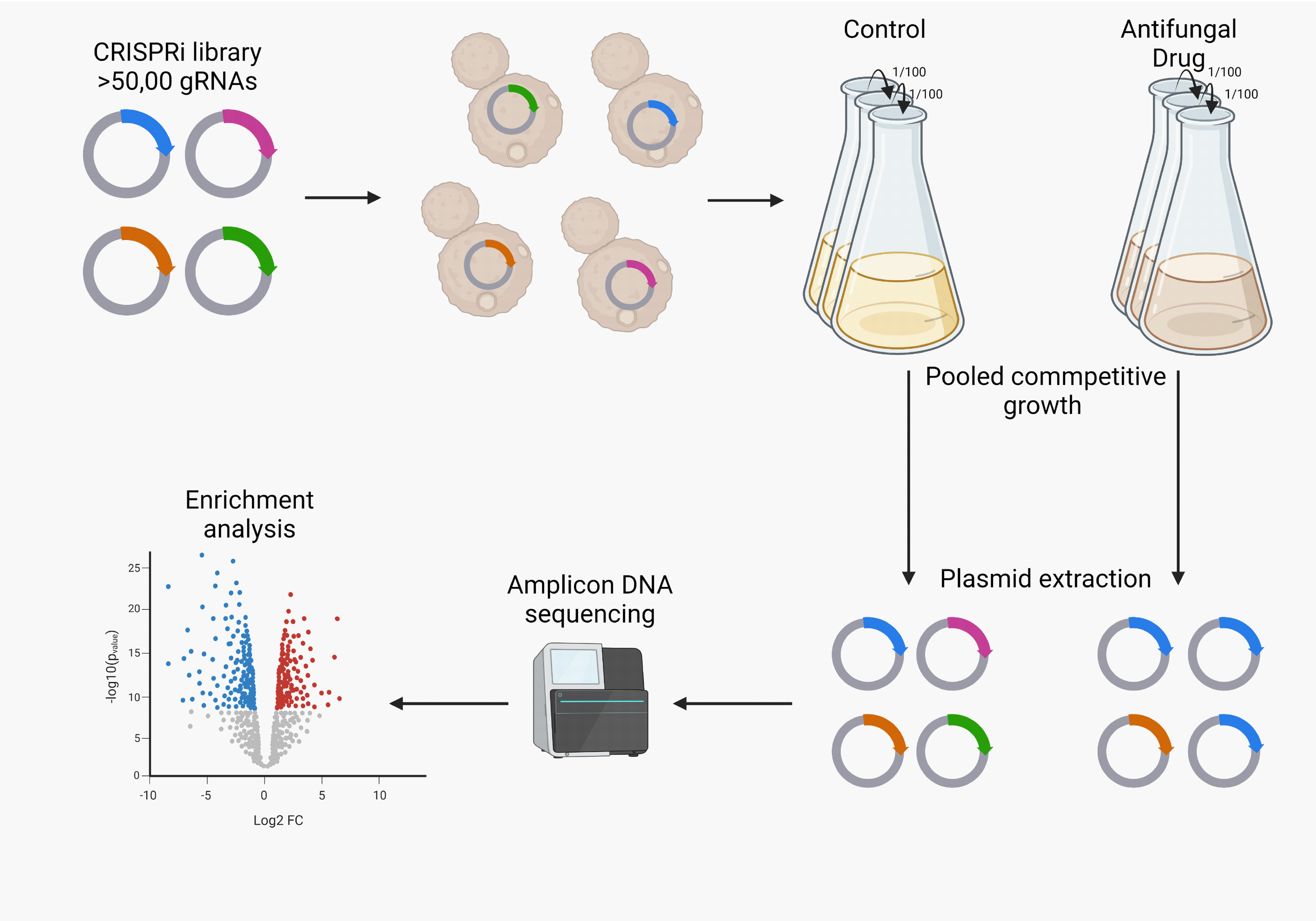Dr. Ofri Levi : Fungal Resistance Mechanisms
Regulation of Gene Expression in Fungal Resistance Mechanisms
Antifungal Resistance Mechanisms: Uncovering the genetic factors and molecular pathways that enable fungi to develop resistance to both antifungal drugs and natural antifungal agents.
Current Research Projects:
Genome-wide CRISPRi Screening for Antifungal Resistance
In this project, we are utilizing a comprehensive CRISPRi library to systematically target all genes in Saccharomyces cerevisiae. The goal is to identify key genetic factors that contribute to antifungal resistance. By employing high-throughput screening techniques, the lab seeks to uncover novel pathways and genes that could be targeted to overcome resistance to both synthetic and natural antifungal compounds.
Identifying Plant-Derived Antifungal Agents and Enhancing Drug Synergy for an Expanded Antifungal Toolkit
In this project, the lab screens a diverse library of plant-derived compounds to identify those with strong antifungal properties. Promising compounds undergo further purification and are tested against fungal pathogens such as Candida albicans, and Cochliobolus heterostrophus. The research also explores synergistic combinations of these natural compounds with existing antifungal drugs, aiming to create new, more effective treatments. This project is crucial for expanding the available antifungal toolkit and addressing resistance issues in both agricultural and clinical settings.
Characterization of Fungal Responses to plant-derived Compounds
This research focuses on how plant-derived compounds, such as Ferulic Acid, affect fungal growth and resistance mechanisms. The lab aims to understand the molecular interactions between these compounds and fungal cells, which could lead to the development of new antifungal agents that are both potent and sustainable.
